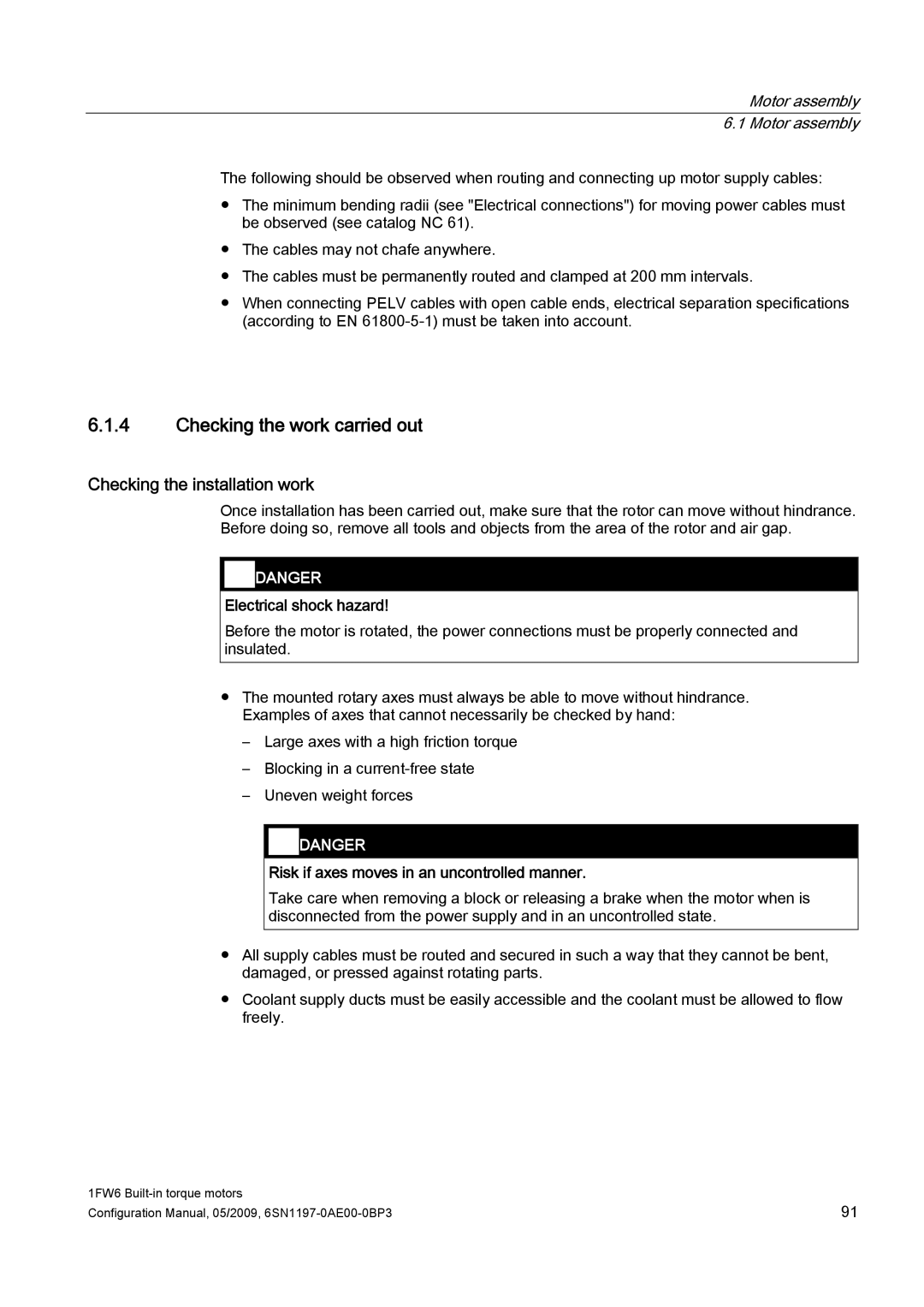
Motor assembly
6.1 Motor assembly
The following should be observed when routing and connecting up motor supply cables:
●The minimum bending radii (see "Electrical connections") for moving power cables must be observed (see catalog NC 61).
●The cables may not chafe anywhere.
●The cables must be permanently routed and clamped at 200 mm intervals.
●When connecting PELV cables with open cable ends, electrical separation specifications (according to EN
6.1.4Checking the work carried out
Checking the installation work
Once installation has been carried out, make sure that the rotor can move without hindrance. Before doing so, remove all tools and objects from the area of the rotor and air gap.
![]() DANGER
DANGER
Electrical shock hazard!
Before the motor is rotated, the power connections must be properly connected and insulated.
●The mounted rotary axes must always be able to move without hindrance. Examples of axes that cannot necessarily be checked by hand:
–Large axes with a high friction torque
–Blocking in a
–Uneven weight forces
![]() DANGER
DANGER
Risk if axes moves in an uncontrolled manner.
Take care when removing a block or releasing a brake when the motor when is disconnected from the power supply and in an uncontrolled state.
●All supply cables must be routed and secured in such a way that they cannot be bent, damaged, or pressed against rotating parts.
●Coolant supply ducts must be easily accessible and the coolant must be allowed to flow freely.
1FW6 | 91 |
Configuration Manual, 05/2009, |
